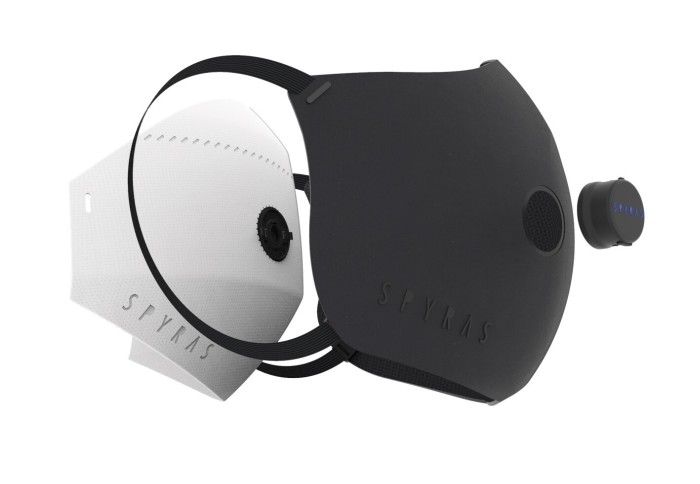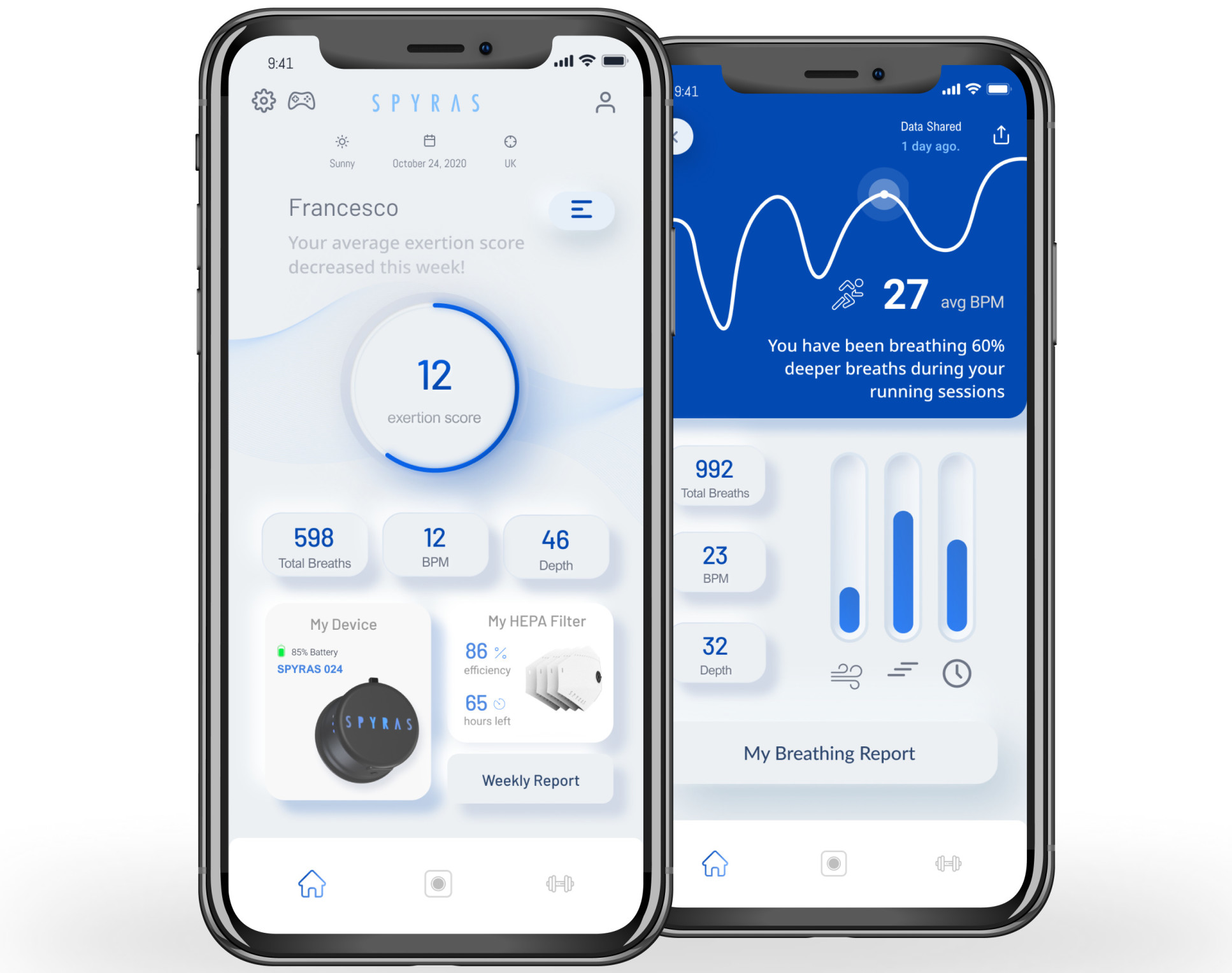Imperial graduate develops smart mask to track wearer’s respiratory patterns

A startup founded by an Imperial graduate has created a ‘smart mask’ that displays respiratory information in real time.
During the COVID-19 pandemic, public health officials around the world have recommended the wearing of face coverings to prevent the spread of the virus. SPYRAS, founded by Imperial College London graduate George Winfield, are developing a ‘smart mask’ to track the wearer’s respiratory patterns and display information in real time.
Using SPYRAS’ paper sensor technology, the mask aims to provide users with actionable information about their respiratory function to improve their health and indicate abnormal breathing trends. They hope that by providing more information about the user’s breathing pattern, this could highlight possible changes in normal health, which could be indicative of illness and prompt the user to seek further advice.
Tracking respiratory performance
The sensor attaches to a normal mask and allows users to track their respiratory performance in real time, via an app. Cloud-based algorithms then look at the data, considering external factors such as weather, pollen and pollution to analyse outside conditions that could affect the user’s breathing.

Using humidity changes, the sensing technology provides a highly accurate, non-invasive and disposable sensor that can be placed directly into mask filters. When the filter needs to be replaced or the user wants to wash their mask, they will first be notified of the decrease in filter performance. When changing or washing a mask, the electronics module twists away to detach and can be reused later. The sensor is then disposed of to keep the mask sterile, with a replacement in its place.
Users can also play games, follow breathing exercises to help with anxiety and stress, and monitor their mask’s filter efficiency – all from their mobile phone.
Comparison with ventilator standards
SPYRAS was one of 800 businesses selected for the Innovate UK “business-led innovation in response to global disruption” award, proposing a sensor that would fit into any mask and connect to a mobile app for users to visualise their respiratory function as they wear the mask. The devices were then tested at the Medical Devices Testing and Evaluations Centre (MD-TEC) at University Hospitals Birmingham Trust to compare the product against ventilator standards of testing. Using a minute breathing rate average from the SPYRAS sensors against ventilator standards, the test showed SPYRAS was able to track breathing rate at a 99.5% accuracy.
Potential to expand
George Winfield, Founder and CEO of SPYRAS, said, “The team suggested in March that we should place one of our sensing technologies directly into the filters of masks to track respiratory rates. We created a concept video of an early prototype and placed it onto social media which seemed to catch people’s imagination and maybe say that this wasn’t such a crazy idea.
“We were thrilled to have been supported by Innovate UK in this project and the team have showcased their talents by delivering an entirely new product and back end platform in only a three-month window, complete with a usability trial at the MD-TEC test centre going up against ventilator testing standards for respiratory monitoring. This product has the potential to expand into remote tele-monitoring and assessment of respiratory conditions.”
The device will now enter user trials to allow for feedback on the features and applications before market entry in early 2021. The team are also speaking to clinical partners about potential applications including identifying breathing pattern disorders and using the device for remote breathing exercises, for example with patients suffering from long COVID.
Actionable insights
SPYRAS is a London-based startup that develops respiratory software and deep learning analytics to better understand human respiratory function and provide actionable insights for health improvement. During his time at Imperial, founder George won the White City Innovators’ Programme for developing low-cost paper sensors to speed up the diagnosis and treatment of sepsis in hospital patients.
Article text (excluding photos or graphics) © Imperial College London.
Photos and graphics subject to third party copyright used with permission or © Imperial College London.
Reporter
Joanna Wilson
Communications Division